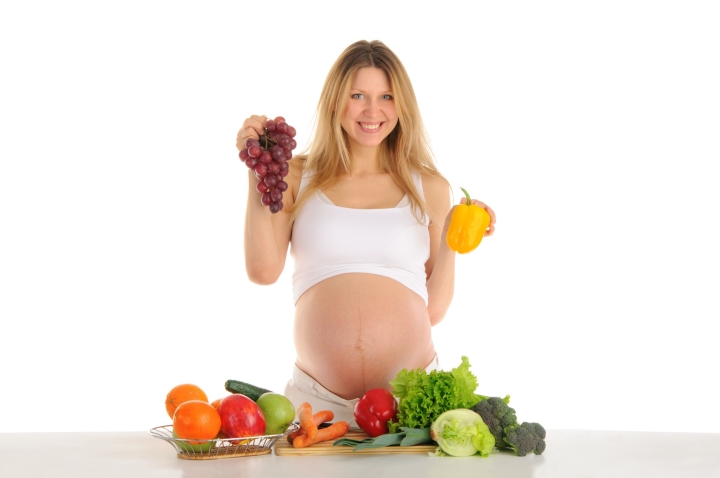Pregnancy is a beautiful journey that brings a lot of changes, both mentally and physically. One of the most common physical changes that pregnant women experience is hunger pangs. Hunger pangs can cause an uncomfortable feeling during pregnancy that occurs when your stomach is empty. Hunger pangs can be difficult to deal with, but there are ways to manage them. In this article, we will explore seven ways to deal with hunger pangs during pregnancy.
In This Article:
- What Are Hunger Pangs?
- Can Hunger Pangs Be A Sign Of Pregnancy?
- Is It Normal To Frequently Feel Hungry During Pregnancy?
- Dealing with Hunger Pangs During Pregnancy
What Are Hunger Pangs?
Hunger pangs, also known as hunger pains, are the discomfort or gnawing sensations that you feel in your stomach when you are hungry. These sensations are often described as emptiness, tightness, or even cramps. Hunger pangs are the result of your body’s natural response to an empty stomach. When your stomach is empty, it releases a hormone called ghrelin that signals your brain that it’s time to eat. This hormonal response triggers contractions in your stomach, which can cause discomfort and pain. Hunger pangs usually subside once you eat something, but they can be persistent and difficult to ignore.
Can Hunger Pangs Be A Sign Of Pregnancy?
One of the questions that many women have is whether hunger pangs can be a sign of pregnancy. The answer is yes; hunger pangs can be a sign of pregnancy, especially during the early stages. During pregnancy, our body goes through various hormonal changes, which can significantly impact our appetite. Many women feel an increase in their appetite during the first few weeks of pregnancy, which can lead to hunger pangs. This increase in appetite is due to the hormonal changes in our body, which can make us feel hungry more frequently. However, hunger pangs alone are not a reliable indicator of pregnancy, and you should always confirm with a pregnancy test.
Apart from hormonal changes, hunger pangs during pregnancy can also be a sign of other factors. For example, if a woman is experiencing morning sickness, she may feel hungry more frequently to avoid nausea. Additionally, hunger pangs can also be an indication that the body needs more nutrients to support the growing foetus.
Is It Normal To Frequently Feel Hungry During Pregnancy?
Yes, it is normal to frequently feel hungry during pregnancy. During pregnancy, your body needs more nutrients to support the growing fetus. This increased need for nutrients can cause an increase in appetite, which can lead to frequent hunger pangs. However, it’s important to make sure you’re eating healthy, nutrient-dense foods to fuel your body and your baby’s growth.
In fact, many women report feeling hungry more frequently during pregnancy than they do when they are not pregnant. Pregnancy is a time when your body is working hard to create a new life. Your body needs more energy and nutrients to support the growth and development of your baby. This increased demand for energy and nutrients can cause your body to signal that it needs more food, leading to feelings of hunger.
Dealing with Hunger Pangs During Pregnancy
Eat Frequent, Small Meals
Eating frequent small meals throughout the day can help keep hunger pangs at bay. This can also help regulate your blood sugar levels and prevent overeating. Instead of consuming three large meals a day, try to have six smaller meals throughout the day. Eating smaller meals will also help to prevent hunger pangs and promote healthy weight gain.
Drink Plenty of Water
Drinking plenty of water can help keep you hydrated and reduce hunger pangs. Sometimes we mistake thirst for hunger, so it’s important to stay hydrated throughout the day. Drinking plenty of fluids, especially water, can help reduce hunger pangs. Keeping yourself hydrated can also help to prevent constipation and reduce the risk of urinary tract infections.
Choose Nutrient-Dense Foods
Choosing nutrient-dense foods can help keep you full and satisfied for longer periods of time. Foods that are high in fibre, such as fruits, vegetables, and whole grains, can help keep you feeling full for longer periods of time. These foods also provide essential nutrients that are important for your baby’s growth and development.
Snack on Healthy Options
Snacking on healthy options can help curb hunger pangs and provide your body with essential nutrients. Instead of reaching for unhealthy snacks, such as chips or candy, choose healthy snacks that are still satisfying. Some examples of healthy snacks include nuts, seeds, fruits, and yoghurt.
Avoid Processed Foods
Processed foods can be high in calories, unhealthy fats, and added sugars, which can lead to overeating and more hunger pangs. Try to avoid processed foods and opt for whole, nutrient-dense foods instead.
Get Enough Sleep
Getting enough sleep is essential for overall health and can also help regulate your appetite. Lack of sleep can cause an increase in hunger hormones, leading to an increase in appetite and hunger pangs. Getting enough sleep is essential during pregnancy to allow your body to rest and recover.
Stay Active
Staying active during pregnancy can help regulate hormone levels and improve overall health and well-being. Regular exercise can help reduce hunger pangs by increasing the production of hormones that suppress appetite. Exercise can also help to maintain a healthy weight gain during pregnancy and reduce the risk of gestational diabetes.
Conclusion
Hunger pangs during pregnancy can be uncomfortable and difficult to manage, but there are ways to deal with them. Eating frequent small meals, drinking plenty of water, choosing nutrient-dense foods, snacking on healthy options, avoiding processed foods, getting enough sleep, and staying active can all help reduce hunger pangs and keep you feeling full and satisfied. As always, it’s important to listen to your body and seek medical advice if you have any concerns or face any serious complications.
Sources:
